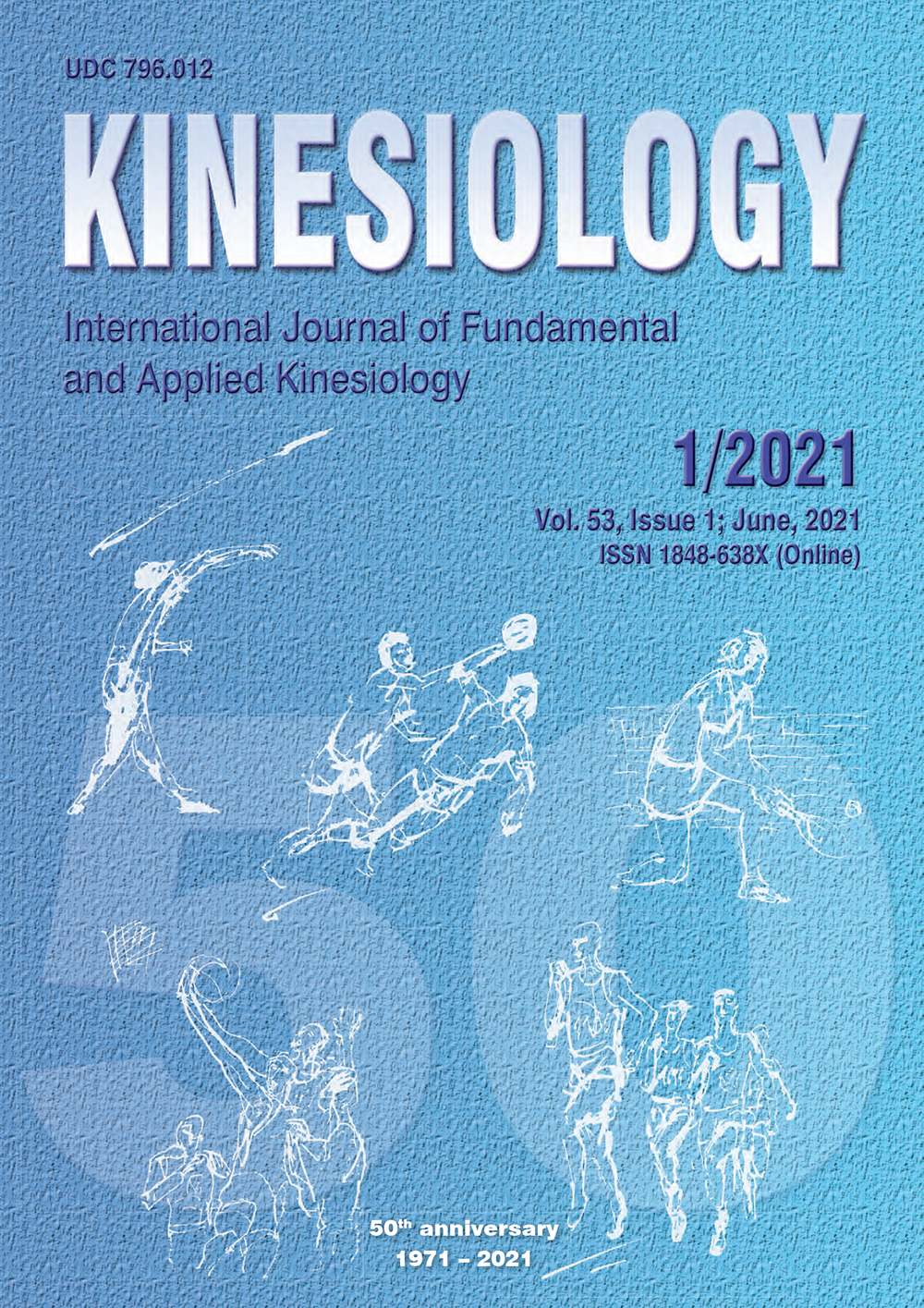Non-invasive assessment of short and ultra-short heart rate variability during different physical and physiological tests
Abstract
The main aim of the present study was to determine the short- and ultra-short-term heart rate variability (HRV) during different physical and physiological tests and to compare HRV to different performance levels. The latter aim was to compare participants’ short- and ultra-short-term heart rate variability before-duringpost- tests. Our hypothesis was that there would be a significant difference between test performance and HRV parameters, and the high performing group would have significantly higher HRV parameters than the low performing group. Fifty-three healthy men (Mage=26.9±4 years, Mheight=177.9±5.7 cm; Mweight=77.8±8.7 kg) were recruited in the current study. We completed the data collection procedure for each participant in four consecutive days. On day-1, anthropometric measurements were conducted and then participants performed isokinetic tests. On day-2, participants performed anaerobic tests; on day-3 equilibrium tests, and on day-4 aerobic capacity tests. The HRV records of all participants were obtained before, during and after all these tests. Based on the participants’ performance, they were divided into two groups: participants in G1 had lower performance and those in G2 higher performance. A two-way repeated measures ANOVA yielded significant differences in HRV values obtained in the four different tests. There was a significant difference between fitness test performance and the variation of short- and ultra-short-term HRV parameters. Also, significant differences in HRV values before, during, and after the testing were observed.
Key words: autonomic nervous system, heart rate variability, physical and physiological tests
Downloads
Published
How to Cite
Issue
Section
License

This work is licensed under a Creative Commons Attribution-NonCommercial 4.0 International License.
At Faculty of Kinesiology we recognize that access to quality research is vital to the scientific community and beyond. Kinesiology is non-profit journal and all costs of publishing and peer review process are covered by the publisher itself or other funding sources like Ministry of Science and Education of the Republic of Croatia. Full text papers are also available free of charge at http://hrcak.srce.hr/kineziologija. There are no restrictions on self archiving of any form of paper (preprint, postprint and publisher's version).
Articles are distributed under the terms of the CC BY - NC 4.0
Kinesiology does not charge any fees to authors to submit or publish articles in our journal.


